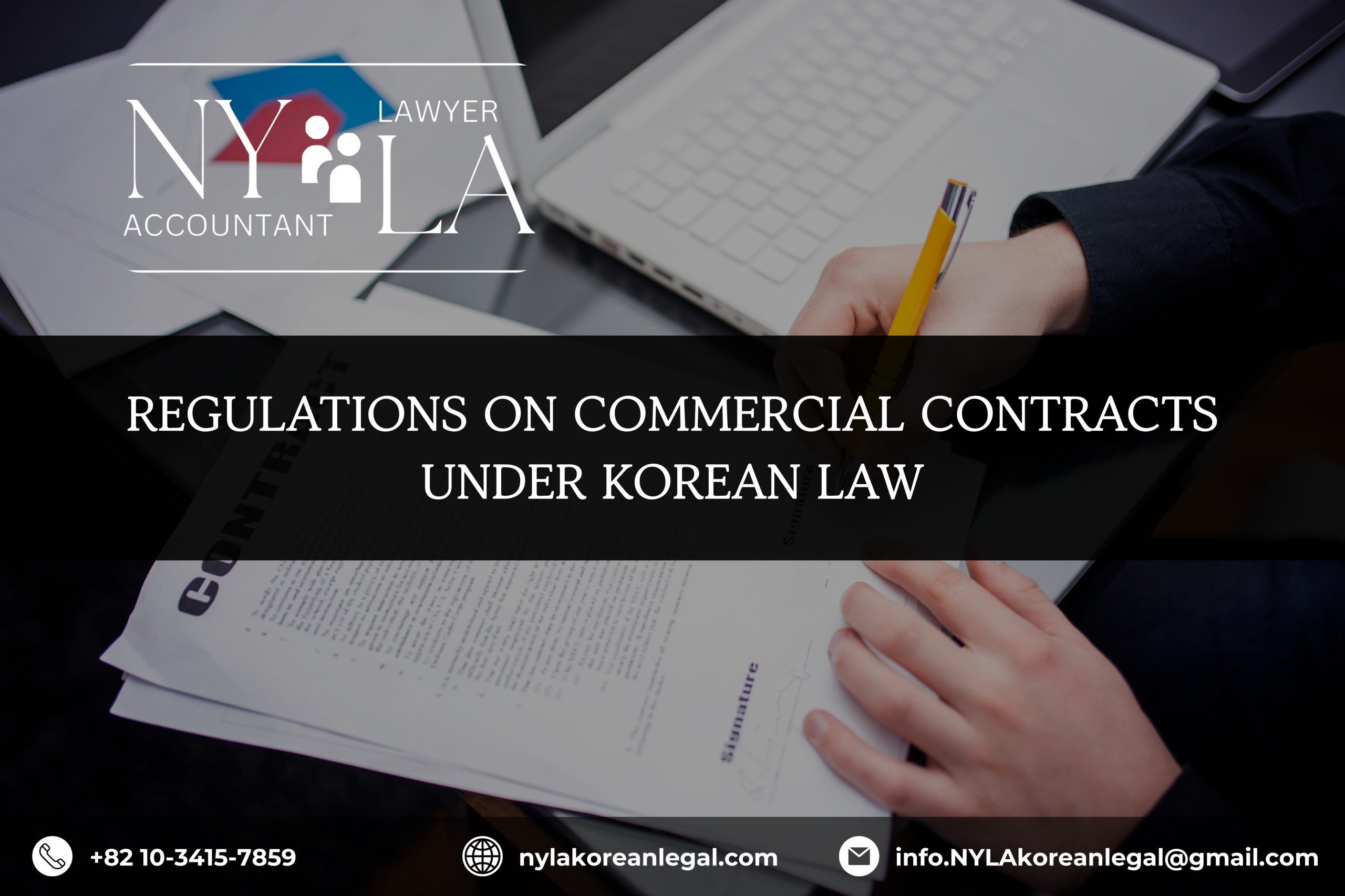Summary
1. Commercial contracts – How should they be properly understood?
In Korea, a commercial contract is an agreement between parties to conduct business activities, such as the sale of goods, provision of services, agency, transportation, insurance, and credit. It constitutes the “rules of the game” agreed upon by the parties, and the law will recognize it as long as the contract does not contravene statutory provisions or public morality.
The legal framework for commercial contracts is established under the Civil Act, which sets out general principles regarding the formation and validity of contracts, and the Commercial Act, which provides detailed regulations for specific commercial transactions.
2. Fundamental principles
Korean law respects freedom of contract, meaning that the parties are generally free to agree on the terms of their contract. However, there are still limitations:
- A contract shall be null and void if it contravenes the law or violates social ethics (Article 103 of the Civil Code).
- When performing a contract, the parties must act in good faith and with honesty (Article 2 of the Civil Code), and shall not exploit loopholes to the detriment of the other party.
3.Form of contract
Oral agreements generally have legal validity in Korea. However, in practice, particularly in commercial transactions, contracts should always be executed in writing in order to serve as evidence in the event of a dispute. For certain significant transactions, such as real estate sales, insurance, or mortgage agreements, the law mandates that the contract be concluded in written form.

4. Common types of commercial contracts
The Korean Commercial Code provides specific provisions governing various types of contracts commonly encountered by businesses, for example:
- Agency agreement: under which the agent, on behalf of the principal, enters into contracts or sells goods.
- Brokerage agreement: under which the broker facilitates connections between clients, e.g., in securities or real estate transactions.
- Transportation contract: stipulating the obligations of the carrier in the transportation of goods or passengers, particularly liability for compensation in cases of loss or damage.
- Commercial insurance contract: the duty of disclosure and the conditions for indemnification.
- Banking and credit agreement: concerning instruments such as bills of exchange, promissory notes, and letters of credit (L/C).
These provisions facilitate commercial transactions in a prompt, transparent, and secure manner.
5. Liability for breach of contract
If a party fails to duly perform its obligations, it shall be required to:
- Compensate for damages (pursuant to Article 390 of the Civil Code).
- Pay a contractual penalty if such a clause has been agreed upon in the contract. However, if the penalty amount is excessively high, the court has the authority to reduce it in order to ensure fairness.
Example: A Korean company enters into a contract of carriage with a Vietnamese enterprise. In the event of delayed delivery or damage to the goods, the Korean company shall be liable to compensate for the actual loss incurred and may, in addition, be subject to a contractual penalty as stipulated in the agreement.
6. Dispute resolution
In the event of a dispute, the parties may choose to:
- Direct negotiation or mediation – saving time and costs.
- Commercial arbitration – commonly used in international contracts, based on the Korean Arbitration Act. As Korea is a signatory to the 1958 New York Convention, foreign arbitral awards are enforceable in Korea.
- Litigation before Korean Courts – where specialized divisions exist to adjudicate business and commercial disputes.
7. Advice for foreign enterprises
- Always execute contracts in writing, with as much detail as possible.
- Clearly stipulate the method of dispute resolution: whether arbitration or court litigation.
- Thoroughly review the specific provisions of the Commercial Code applicable to the relevant sector (e.g. transportation, insurance, credit, etc.).
- Seek advice from a Korean attorney when necessary, in order to avoid unfavorable contractual terms.
8. Conclusion
The Korean legal framework governing commercial contracts combines flexibility (respecting the freedom of contract) with rigor (detailed provisions set forth in the Commercial Code). This enables businesses to enjoy broad room for negotiation while still ensuring legal protection in the event of a dispute.
9. About NYLA – Korean Legal Office

■ NYLA – Your Trusted Legal Partner in Korea
At NYLA, we understand that the success of foreign businesses in Korea requires not only a solid business strategy but also reliable legal support. With a team of experienced Korean attorneys and legal professionals, NYLA provides tailored legal services for companies, investors, and individuals operating or planning to establish a presence in Korea.
We support our clients throughout the entire business journey with comprehensive services, including:
- Legal consultation on company establishment, taxation, and immigration;
- Advice on commercial real estate, franchising, and product distribution;
- Support in human resources, marketing, and business strategy.
In addition to legal advisory, NYLA also represents clients in civil litigation cases related to business, labor, marriage, family, and inheritance to ensure their rights and interests are fully protected.
■ Contact NYLA

If you’re a foreign business or individual looking for a reliable legal partner in Korea, NYLA is here to help. We are committed to delivering effective, practical, and personalized legal solutions for every client.
With a proven track record of assisting hundreds of international clients, our team is equipped to help you navigate complex legal challenges—whether it’s commercial disputes, contract issues, or foreign investment guidance.
Don’t let legal matters hold you back. Let NYLA be your trusted guide in the Korean market.
■ Get in touch with NYLA for expert legal support
| Website: https://nylakoreanlegal.com/
FB: https://www.facebook.com/nyla.koreanlegal Tiktok: https://www.tiktok.com/@nylakoreanlegal Youtube: https://www.youtube.com/@NYLA-xd8qx Email: info.NYLAkoreanlegal@gmail.com SĐT: +82 10-3415-7859 |
 |






















































